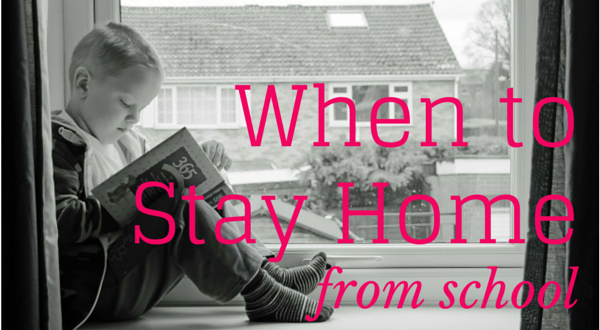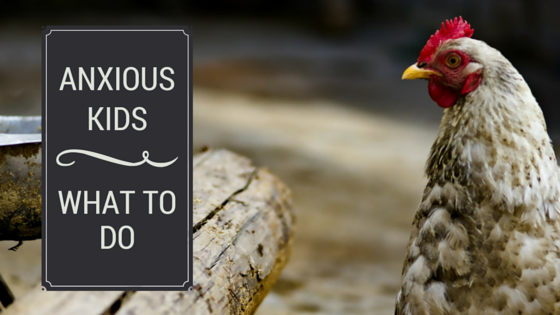Hello there,
As parents we face a lot of choices about our children’s education.
When a child is asking not to go to school or to go to a different school how do you handle it?
How do you balance your parental needs and your child’s needs?
How do you even know what is really happening at school when you aren’t there
Recently we were asked:
I have a 15 year old who isn't fitting in at her school. She's extremely shy and soft spoken. On the last day of school before break she had a meltdown and refused to leave her room. She wants to be homeschooled because she feels the pressure to perform coupled with the exhaustion of doing homework until late at night. I want to be supportive, but since she is extremely shy I don't think staying at home is a good idea.
How do I help her understand my point of view while validating hers?At 15 should I give her more autonomy regarding her educational plan?
Whether your child is 5 or 15 how do you make choices about their education?
This is a complex topic.
You both have concerns that sound very reasonable. You want her to develop more social skills so she isn’t limited in life by her shyness. She wants to have a schedule that allows her to get her work done without the pressure and without late nights. You both desire for her to get an education.
Too much stress and pressure in any environment doesn't create optimal functioning. That being said there are a lot of things that parents, students, schools, and teachers can do to help with stress.
The ability for your daughter to advocate to herself at school, to learn how to work optimally in different settings, and to manage her stress, are really valuable life skills. Just because a child is experiencing stress at school doesn’t mean it isn’t the right environment for the long term, it DOES mean there is an issue to be addressed.
I would start by having a conversation during a quiet time – when she is not feeling pressured and stressed. Ask questions to really understand what pressures she is feeling. Is it all her homework or some of it? Are other things happening in her life that are contributing to this pressure—stress with family, stress with friends, too many extracurricular activities, etc? What has she already tried to help herself? What support has she gotten from her teachers? Is her homework taking longer than her teachers expect it to? Are there other skills she is struggling with—time management, academic/learning issues, attention skills, organization, prioritization, or perfectionism?
Once you really know what the issues are, you can figure out a plan with her – act as a consultant working on a solution with her. Tell her what you’ve observed about her shyness. Explain to her your values about developing more social skills and your concern about her staying at home.
What are ALL the different options that you both want to consider?
Which of these options best meet your needs and hers?
Are there options that she can try out for a short time to see if they work for her (and you)?
It could be that she needs more help at school in order to flourish and that there is a way for her teachers, and yourself to support her in her current school.
Or is homeschooling is a better match for her needs and she agrees to do other activities so she is not home all the time and she can build her social skills?
As a parent, you don’t need to make these choices all by yourself. Consult your child’s teacher and the school administration. They have valuable insights into your daughter and experience helping other students, as well as knowledge of all the resources available at the school.
To the extent that you can, take your time with these decisions—some can be hard to “un-do”.
Lastly, there is something even more important than where your daughter goes to school. Most important are the messages that your daughter might be telling herself during this process. Tune into these. If she tells herself, “I’m not smart enough. I wasn’t able to do what other kids were doing” and she erodes her sense of self efficacy, it could have lasting effects even into her adulthood, long after she’s done with school.
Making choices about your child’s education is stressful. Ultimately—whatever you both choose–use this situation as a chance to build her skills: to advocate for herself, to express herself, to manage her stress AND use this situation to listen, to understand, and to forge the lifelong relationship that you both desire.
Warmly,
Cecilia and Jason Hilkey










An issue that was not brought up as a real possibility is that there may be bullying going on. Often teenagers will not tell their parents what is really going on when bullying occurs because they are afraid their parents will respond in a way that will worsen the situation. Homeschooled children that belong to co-ops and youth groups often develop excellent social skills, and gain confidence due to being in smaller groups where they are not overlooked. If a shy 15 year old is having a “meltdown” over going to school, you need to take her seriously. Shy children are often viewed as weak and can easily be subject to bullying as they are often hesitant to stand up for themselves.
Thanks, Judy. I think that emphasizes the value of communication and trust in the relationship with our kids!